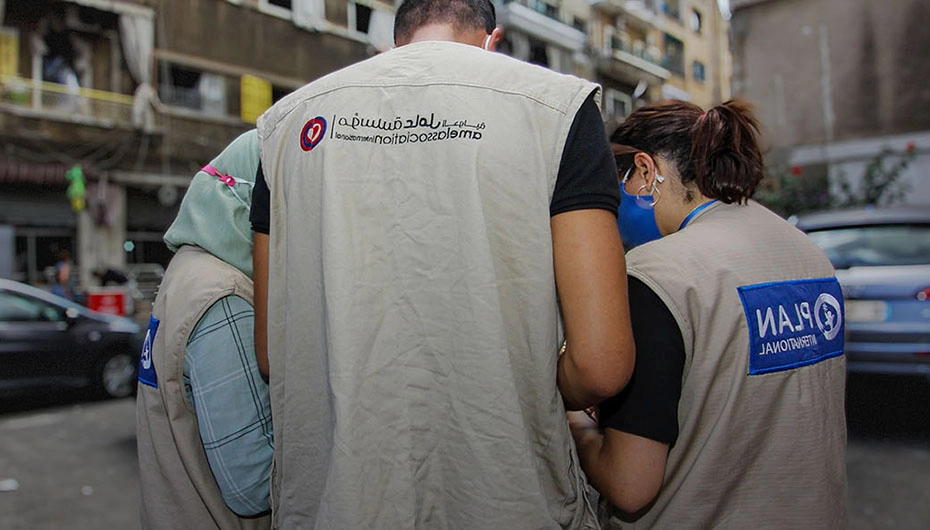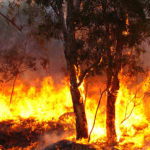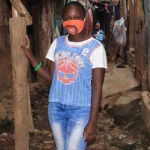Media Centre - Media release - 20 August 2020
“It was the worst day of my life”: children vulnerable to trauma and anxiety in wake of Beirut blast, Plan International warns

(BEIRUT): Thousands of children could be at risk of developing post-traumatic stress disorder (PTSD) or anxiety following the Beirut explosion, Plan International has warned.
The humanitarian organisation has launched an emergency appeal to ensure families whose lives have been shattered by the disaster have access to food, water, hygiene kits and emotional support.
In the fortnight since the devastating blast, parents have told the child rights and humanitarian organisation of a marked increase in youngsters who are struggling to sleep, suffering from nightmares and flashbacks or too afraid to go outside.
Heightened distress, anxiety and fear of being left alone has also made many children more prone to aggressive behaviour, constant crying and attachment issues, while others have changed the way they eat, sleep and express themselves.
One teenage boy told Plan International Lebanon he can still hear the noise of the explosion on August 4, which killed an estimated 178 people and devastated vast swathes of the Lebanese capital.
Elie, 15, said: “It was the worst day of my life. I can still hear the noise of the explosion in my ears, as if it happened one hour ago.”
Christina, a mother, says her five-year-old son has been unable to sleep in his own bed since their neighbourhood, Mar Mikheal, was all but destroyed.
“My son is still traumatised. After nine days he refuses to sleep in his bed,” she explains. “He wants to be beside me, holding him all the time. I am not sure how to talk to him and let him feel safe again, as I myself don’t feel safe anymore.”
An estimated 100,000 children have been directly affected by the disaster, according to UNICEF, many of whom have lost their homes and are now living with relatives outside of Beirut, in temporary shelters, or in unsafe apartments with no windows or doors.
It is feared the crisis could have a profound impact on their mental health and wellbeing, and Plan International is warning that along with food, water and shelter, psychosocial support is urgently needed to help children come to terms with what they have witnessed.
Tony, a father-of-two from Karantina, the area closest to the blast said: “My family is living now at my wife’s brother’s house at the village, as our house is not liveable anymore. There are no locks, no windows, nothing is left. It will take us a very long time to repair what was damaged and lost, as everything is so expensive and with the inflation I can’t repair everything by myself.
“Adding to that my daughters, who are eight and two, and my wife were alone in the house during the explosion and are still under trauma. I hear my wife crying at night alone. I don’t know what to do and what to tell her.”
Elissa Al-Hassrouny, a child protection specialist at Plan International Lebanon, said: “Children witnessed a catastrophic event, especially the ones who were closest to the area of the blast.
“They saw their homes being damaged or destroyed, their parents or relatives injured, crying and shocked. They saw dead bodies and people with severe wounds laying on the streets calling for help. They also witnessed chaos in the hospitals and above all, they heard and saw the scariest explosion ever.”
In the aftermath of the explosion, Plan International Lebanon is organising activities for children such as drama, crafts, storytelling and sports, where they can interact with others in a safe environment.
The organisation has also been providing psychological first aid, and giving parents and caregivers advice on how to talk to children and young people about the disaster.
Al-Hassrouny added: “Children will bear the scars of what they have witnessed for a long time. As well as food, water and a safe place to live, it is also vital they have access to psychosocial support over the coming weeks and months.
“It is important that we help children to express and share their feelings, experiences and thoughts about this traumatic event. This will allow them to learn how to support themselves, identify positive coping mechanisms and build resilience to cope with the current situation and instability around them.”
NOTES TO EDITORS
To arrange an interview with a spokesperson in Lebanon*, please contact:
Evelyn Wambui
Regional Communications and Media Specialist (Middle East)
Email: [email protected]
Mobile: +254 793269706
Anna MacSwan
Global Press Officer (UK)
Email: [email protected]
Mobile: +44 0790 822 5389
* Please note the time difference: Lebanon is 7 hours behind Australia – afternoon and evening interviews will work best.
About Plan International Australia
Put simply, we’re the charity for girls’ equality. We tackle the root causes of poverty, support communities through crisis, campaign for gender equality, and help governments do what’s right for children and particularly for girls. We believe a better world is possible. An equal world; a world where all children can live happy and healthy lives, and where girls can take their rightful place as equals
Media contacts


